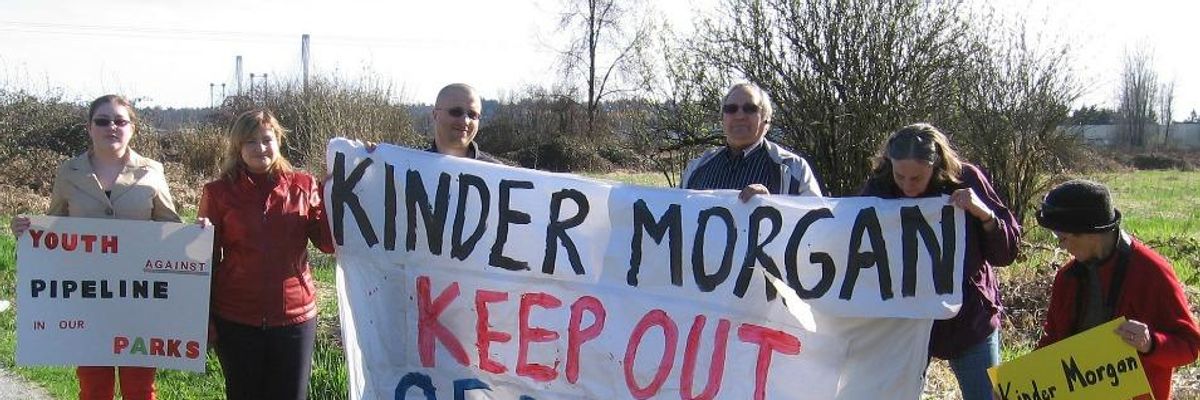Opponents of tar sands got some good news this week.
Oil and gas company Statoil announced Thursday that it was shelving its Corner tar sands project in Alberta.
The Norwegian firm's decision to postpone the project "for a minimum of three years" is due to economic costs of labor and materials, according to a press statement from the company.
"Market access issues also play a role--including limited pipeline access which weighs on prices for Alberta oil, squeezing margins and making it difficult for sustainable financial returns," part of the statement reads.
A similar announcement was made earlier this year by French energy firm Total, which said it was shelving its Joslyn tar sands mine in Alberta because of escalating costs. In addition, Shell announced in February that it was stopping work on its Pierre River mine in the Alberta tar sands.
Anthony Swift writes at NRDC's Switchboard blog that these announcements show it is
...time to abandon the tattered argument that major pipelines like Keystone XL would not enable substantial tar sands expansion and associated carbon emissions. Industry doesn't believe it - and neither should policy makers.
[...]
If we build Keystone XL, we'll see many of the tar sands projects that are being cancelled and postponed become viable once again. At a time when decisive action on climate change is urgently needed, the Keystone XL tar sands pipeline would make the problem of carbon pollution worse - enabling the production of some of the world's dirtiest fossil fuels.
Also on Thursday, tar sands critics in the city of Burnaby, British Columbia scored at least a temporary victory in their fight to stop energy giant Kinder Morgan's Trans Mountain pipeline expansion--a project facing strong opposition.
Canada's National Energy Board (NEB) said that at this time it could not force the city to allow the company to conduct its surveys and studies for the work in the conservation area, which would violate the city's bylaws.
CBC News reported that "Kinder Morgan wants to bore a hole under [Burnaby] mountain as part of a proposal to nearly triple the capacity of the existing pipeline, but the city has vowed to block the project however it can."
In its statement, the NEB writes "that the motion filed by Trans Mountain raises a constitutional question as to whether City of Burnaby bylaws are inapplicable to the company as it exercises its powers under the National Energy Board Act and whether the city should be prevented from enforcing those bylaws."
It is now up to the company to provide formal notice to the attorneys general of Canada and the provinces if it wants to continue, and the issue would then return to the NEB.
Environmental group ForestEthics has said that among the tar sands pipeline's problems is that it could "increase tanker traffic in the region from about 80 a year to over 400 tankers a year."
Mayor of Burnaby and pipeline foe Derek Corrigan said at a rally this month that "that is the scariest concept for us as a city and as a province that you can imagine. When you think about the potential catastrophe that could occur as a result of one of those tankers being damaged in our inlet--the destruction that that would cause to the reputation of this city...the people that surround that inlet...[and] to the wildlife--and never mind the tourism."

